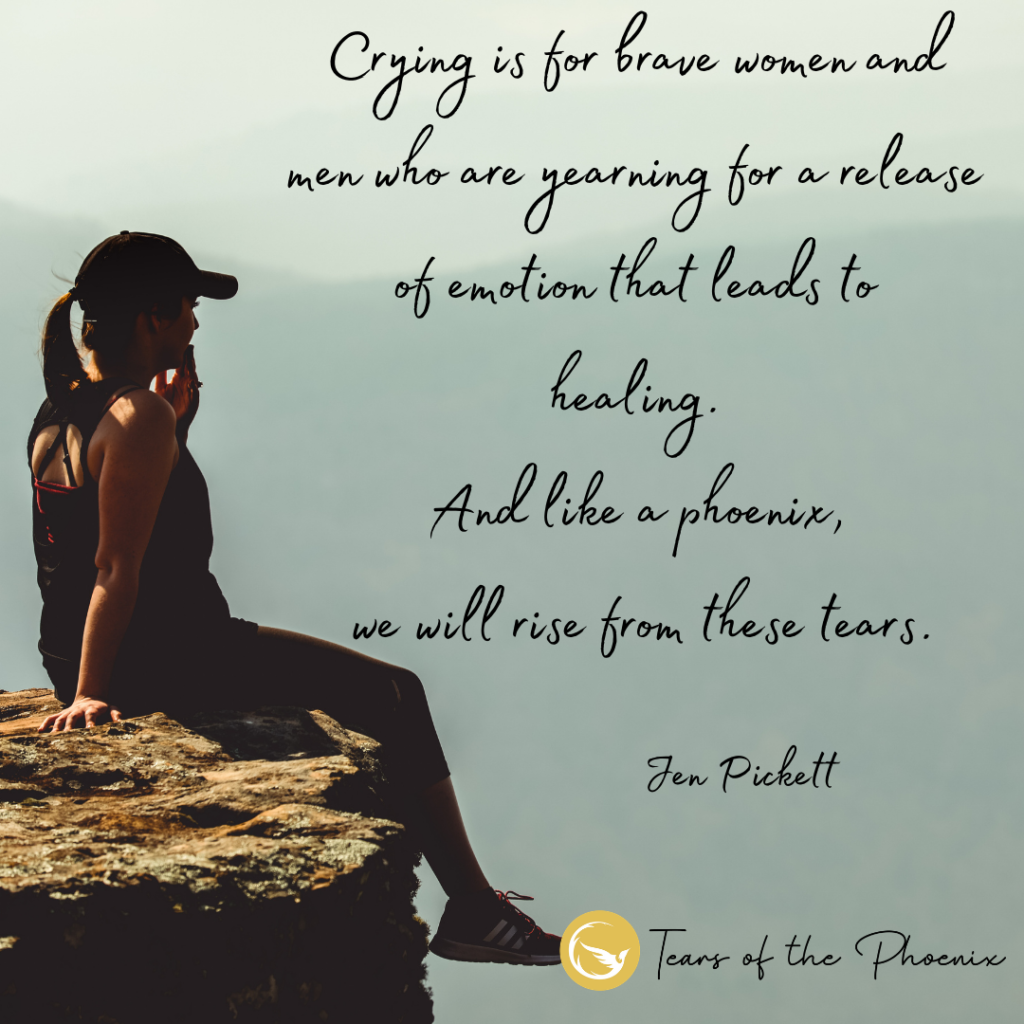Ever noticed when you or someone else starts to cry, people want to rush in and calm you down? Cheer you up. Fix your hurt.
And then there are those rare few who know crying ain’t for sissies and they embrace you, sit next to you, grab your hand, and let you let it all pour out. Those people get it. They are priceless to have in our lives.
It took me years to learn to cry. I mean sure, I had my moments. The infamous Sarah McLachlan ASPCA commercial, a heartfelt rom com, or when you become so angry it comes out in tears. But I didn’t really know how to cry.
I grew up with a tough mother. She was a pillar of strength and I admired her for it. And yes, her strength was certainly an admirable attribute. But I only saw her cry twice. The day my dad moved out during their divorce and when a close friend of hers betrayed her. So I modeled this strength and inadvertently I grew to believe crying and showing emotion was a sign of weakness.
As a teenager I always aspired to be the heroine, a leader, the strong woman portrayed in the movies that was completely unaware that others admired her strength and ability to defend the defenseless. As I became an adult, this developed. I wanted to be strong and independent and I admired my single mother for her unwavering courage as she took on each day. I cried less and less. And when I did, I hid it from others.
After marrying Jake, years later I was initiated into the Blue Family of law enforcement when he became a deputy. And suddenly, I had to be tougher. I had to send him away from the house each day knowing he may lose his life, but I wouldn’t bat an eye. I pushed the fear deep. I wouldn’t feel it. Hearing stories of close calls were just like listening to scary stories around the campfire. Losing him would never happen. And each night I relaxed when I heard his truck pull up, his K9 go to his kennel, and the sound of the velcro of him taking off his vest.
Once in awhile, an officer would fall and I would watch the widows with empathy and admiration of how they could even stand at a line of duty funeral. I remember the first officer funeral I attended of a deputy Jake worked alongside with, and that same strength and resolve filled me that day. I only shed a tear during the final call of duty. Because I had to be strong. I believed it in my core. And tears went against that.
In 2018, Jake was shot and killed while pursuing a suspect. Within minutes of hearing the news, I put a cap on that bottle of tears and started asking questions rapid fire in a logical sense. I entered the hospital with a stone face as hundreds of officers lined the entrance all watching me, the widow. I held my strength. I remember hugging others, family, friends, his brothers in blue. Sometimes I cried and other times I comforted them.
I vividly remember going to see him in the ICU room where he remained on life support until they could harvest his organs because he had been brain dead since the second he was shot. I walked down the hall past officers I knew. I was followed by my entourage of deputies sworn to protect me anywhere I went in the hospital. I came to his room with 2 officers standing guard outside his room. I entered the room alone, if that is what you want to call it. My entourage and the guard officers stood outside his room with only a curtain giving us privacy. I tried to talk to him. To plead with him. To pray with him. I choked back tears and whispered as I spoke because I didn’t want a damn soul to know my strength was wavering.
But why? Why do we believe tears are weakness? Why do we want to stop people from crying and fix them? My husband was dead. I shouldn’t have given a crap who heard me.
And in the 2 years of therapy, I have worked to correct this line of thinking that was built from a young age. And I have experienced the euphoric release of allowing raw emotion to flow unhindered. Those core emotions that we bury deep that manifest into anxiety and depression. I still struggle, but I remind myself crying ain’t for sissies. Crying is for brave women and men who are yearning for a release of emotion that leads to healing. And like a phoenix, we will rise from these tears.

